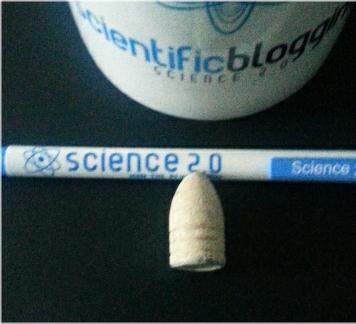There also many Civil War-era battle and camp sites that local people know about but that archaeologists have not cataloged yet - they are not in history books and so the sites have not been officially analyzed. In Civil War CSI: Did Stonewall Jackson Die From Pneumonia? I posted a picture of a bullet I found wandering around one of those overgrown sites in South Carolina that haven't been analyzed yet:

To me it was amazing that in the late 1980s and early 1990s there would be anything left in America but there are a lot of sites and archeology is a slow, meticulous process. People will still be finding artifacts from the Civil War a hundred years from now (and obviously in older cultures older stuff is even more common. I bought an Orthodox cross in Bulgaria that was from the 1700s for what I considered peanuts and there was no big customs hassle, they were not worried I was taking artifacts out of the country or anything, they are overrun with stuff that age).
Camp Lawton, a Civil War prison camp in southeast Georgia, was virtually undisturbed for nearly 150 years before it was discovered - it had to be a surprise to local residents that it was undiscovered, since they all had probably known it once held 10,000 Union prisoners, in 1864. A Georgia Southern University archeology saw the remains of the stockade walls in 2010 and now the project has gotten up to speed and they have found 600 artifacts so far.
Ga. Civil War camp has turned up more than 600 artifacts, many requiring painstaking cleaning - Kentucky News




Comments